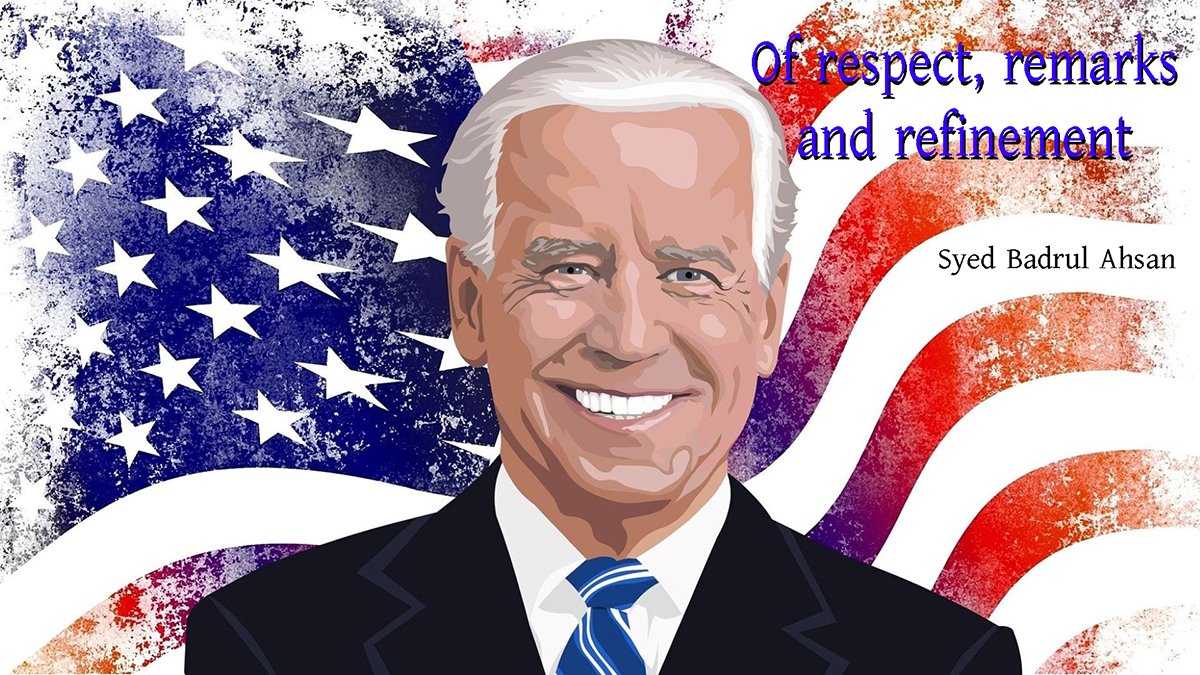SYED BADRUL AHSAN
A day after US Secretary of State Antony Blinken returned from a much-publicised visit to China and a meeting with President Xi Jinping, the hope which had been raised about a cautious improvement in ties between Beijing and Washington was pretty much dashed. And it was dashed when President Joe Biden was caught on microphone referring to the Chinese leader as a dictator.
That begs the question: Why must a country expect other countries to follow rules it applies to itself? The question leads to another, and more important, one: By referring to Xi Jinping as a dictator, didn’t Joe Biden hurl an insult at him? The standard rule in international politics is that politicians across the globe will treat one another with respect, despite the different strands of politics they follow.
Not long ago, a western political commentator referred to Ho Chi Minh as an autocrat. Obviously, this commentator was looking at Vietnam’s iconic leader with the spectacles of prejudice. He did not know or was not keen to know of the long and hard struggle Ho had put up in his battle to free his people from first the French and then the Americans. To condemn him, therefore, as an autocrat is simply a sign of wrong political education on the part of those who do the condemning.
In our times, it is not to be expected that politics will follow principles which may not be commensurate with historical traditions in different parts of the globe. The late Lee Kwan Yew was very clear in his perceptions of democracy. For him, democracy as practised in the West operated on a set of values at a remove from values forming the core of societies in Asia. To expect, therefore, that democracy as it works in the West will work in Asia, Africa and Latin America will be an expectation misplaced.
Over a long period of years, Mao Zedong has been excoriated by political writers and biographers in the West as the man on whose watch millions died in China. Ignored are the reasons — famine, pestilence and pre-communist exploitation — which led to those deaths. That certainly does not camouflage the heights to which Mao raised China. There were certainly the excesses of the Cultural Revolution, but to expect Chinese youth to behave in the way youth in democratic societies have behaved would be wrong. Mao has been accused of having bad teeth, of keeping concubines. That is not how you assess history’s great men.
That said, one cannot but observe certain similarities in human behaviour around the world. The recent street violence in France is a testament to the unruly nature of human behavioural patterns. Back in 1968, student violence pushed governments in Paris and Bonn into clear danger. In 1970, the shootings at Kent State University in the United States, only because its students were protesting the Vietnam War, are a matter of history.
The point here is that no uniform definition can be applied to political systems. At the same time, there are the hypocritical aspects among those who are inclined to swiftly strike down the reputations of significant shapers of history and yet go silent about those who ought to be roundly condemned for their behaviour. The late Yasser Arafat was for decades defined as a terrorist. Venezuela’s Nicolas Maduro is a pariah for Washington in the way Cuba’s Fidel Castro was in all the years he presided over his country’s fortunes.
But observe the tragedy unfolding in the Jenin refugee camp in the occupied West Bank. Israeli air strikes have pounded away at homes and at Palestinians as punishment for what Tel Aviv says are terrorist acts by Palestinians. How many voices have been raised against these manifest acts of violence against a people who have lived homeless and stateless for generations? On western media there is a barrage of propaganda about Russia’s invasion of Ukraine. The Russian President is disdainfully referred to as simply Putin. That decency demands he be referred to by the position he holds is forgotten.
So the Russian assault on Ukraine is a stain on morality, but the Israeli bombing of Palestinian refugees is not, the killing of the journalist Shireen Abu Akleh is not. The International Criminal Court issues a warrant for President Putin’s arrest. It stays silent when it comes to what Benjamin Netanyahu is doing in occupied Palestinian land. When the Quran is burnt in Sweden and is regarded as an expression of free speech, you tend to wonder where the line between respect and insult has become blurred.
Respect, in society and in politics, has increasingly been in deficit. You watch Donald Trump, the offensive language he employs against anyone who does not agree with him. And there is Boris Johnson, who rather than being contrite before a Commons privileges committee investigating him terms it a kangaroo court. In the early 1990s, George W. Bush, on his way to losing the presidency to Bill Clinton, termed his Democratic rival and Al Gore as Bozos.
Mohammad Ali Jinnah took pleasure in insulting the scholar-politician Moulana Abul Kalam Azad by refusing to shake hands with him and by calling him a showboy of the Congress. Z.A. Bhutto, for no rhyme or reason, denigrated Indira Gandhi in the 1970 election by referring to her as ‘mai’, a term generally applicable to a less than privileged woman. John Foster Dulles turned away from Zhou En-lai rather than take the latter’s proffered hand at the 1954 Geneva conference. Ziaul Haq made his intentions clear about the incarcerated Bhutto. ‘I shall hang the bastard’, he thundered. And he did, only to be blown into pieces in an air crash nine years later.
Respect goes down the drain when teachers are humiliated by bureaucrats. Academics lose self-esteem when they kowtow before the symbols of authority. When creditors hound poor farmers unable to pay the instalments on the loans they have taken out even as all those robber barons escape the net, it is poverty which is being laughed at.
Long years ago, Ronald Reagan stepped beyond the bounds of diplomacy when he called the Soviet Union an evil empire. He was playing to the gallery at home. In the wider world, the comment was noted for its lack of finesse and ethics.

























